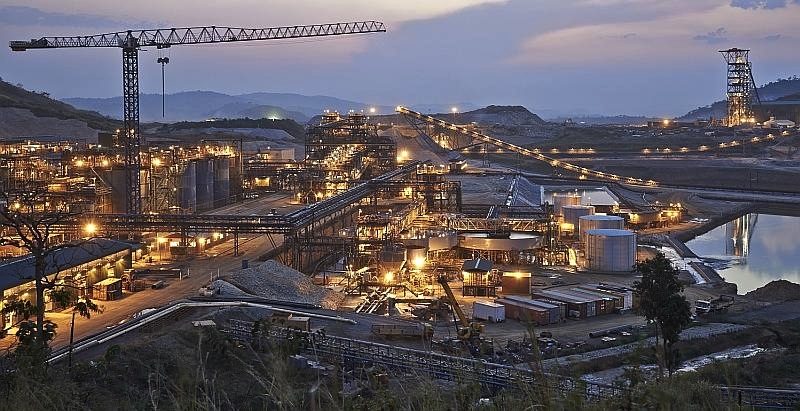Kibali shines in record year for Randgold Resources

Kinshasa, – The Kibali gold mine in the Democratic Republic of Congo was the star performer in Randgold’s portfolio of operations in 2015, exceeding its target by 7% to contribute 642 720 ounces to the group’s record production for the year.
Speaking at a local media briefing here, Randgold chief executive Mark Bristow noted that the two-year-old operation’s remarkable success was a tribute to an effective cooperative effort which had united the developers, the authorities, the community, the contractors and suppliers in a strong commitment and a common purpose.
“It’s been a significant achievement for a country which is rich in mineral resources but has not always managed to make the most of this endowment. Kibali is going to make a major impact on the Congolese economy – it has already spent more than $1 billion with local service and goods providers – and I believe it will also be the flagship for the development of a major gold mining industry in this country,” he said.
Bristow cautioned, however, that Kibali was still a work in progress and faced many challenges as it worked towards its completion in 2018, when the underground mine was expected to be fully operational.
“The next two years will be particularly tough, as Kibali continues to ramp up its underground production within the constraints of a lower grade and the consequent need for a higher throughput, and we are therefore forecasting an output of 610 000 ounces for 2016 and 620 000 ounces for 2017,” he said.
“To ensure Kibali’s continued delivery, our partnership with government and the community will if anything have to be strengthened. For its part, government has to focus on the urgent need to establish an effective local administration, in an area where rapid population growth and the lack of functional structures are generating a complex social dynamic that will become increasingly difficult to deal with.”
Bristow said that despite the stressed gold market, the operational challenges at Kibali and socio-political issues in the DRC, Randgold remained committed to increasing its presence in the country, and had recently entered into a new joint-venture agreement – its third in the region – with government-owned Société Minière de Kilo-Moto SA (SOKIMO) and Moku Goldmines AG (Moku) for the Moku-Beverendi gold exploration project, along the same greenstone belt that hosts Kibali. In terms of the agreement with the owner of the project, Société Minière de Moku-Beverendi SA, Randgold can earn in a minimum 51% stake in the project by funding and conducting exploration and completing a prefeasibility study. This addition to its portfolio extends Randgold’s exploration footprint in the DRC to 7 824km², spanning the major gold belt in the north-east of the country.
“Our commitment to expanding our presence and stepping up our greenfields exploration here demonstrates our long term intent of finding world-class gold deposits and developing them into profitable mines, thus contributing to the DRC’s continuing evolution as a democratic society with a robust economy,” Bristow said.
{{ commodity.name }}
{{ post.title }}
{{ post.date }}




Comments